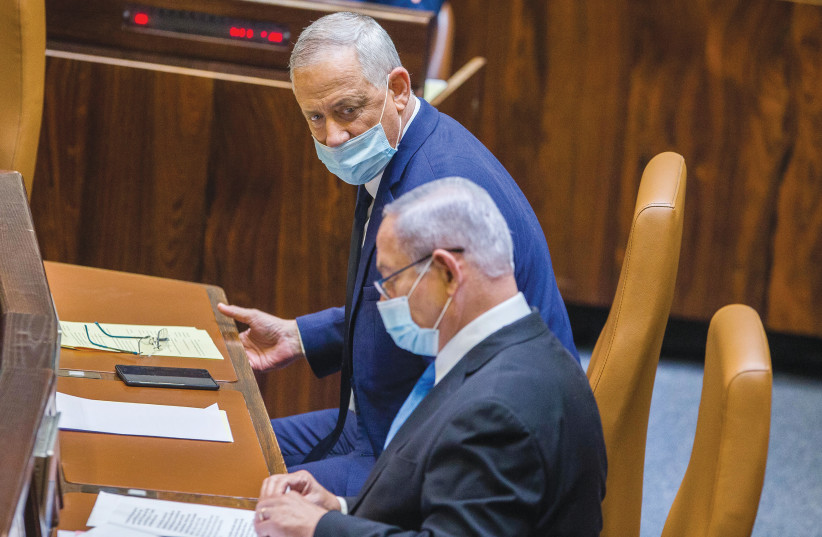Prime Minister Naftali Bennett’s governing coalition keeps losing vote after vote in the Knesset plenum, day after day after day.
When that happens to a coalition, it is usually a sign that there is a strong opposition leader who is focused and working hard to bring the government down.
Not this time.
Opposition leader Benjamin Netanyahu has shown up to cast the deciding vote when the coalition has lost. But his focus is far from the plenum, as he decides whether to accept a plea agreement from the prosecution that would require him to leave the Knesset and perhaps end his political career.
So is the floundering of the coalition a complete coincidence, unconnected to the overused cliché that took Israel to four elections – “to Bibi or not to Bibi?”
Of course not.

The potential plea deal has impacted the balance of power in the Knesset in three major ways.
First, the Likud has been more effective in exacerbating the differences between the right- and left-wing parties in the coalition. This was evident in the opposition’s victory on Monday on the IDF draft bill, and the vote January 12 following a fight over planting trees in the Negev.
When people are more effective, it is often a sign that they have greater motivation than normal. For Likud faction head and opposition coordinator Yariv Levin, who is close to Netanyahu, his motivation was to persuade Netanyahu to stay and not accept a plea agreement, in hopes of bringing down the government.
If Netanyahu is the glue that keeps the coalition together, perhaps the cracks in the coalition would have Netanyahu stick around.
The second impact is that both the plea deal talks and their recent losses have given coalition MKs themselves the impression that their government could be short-lived without its glue. This has made them reconsider their loyalty to a coalition that has not been functioning properly lately.
Why work hard for a boss who won’t be around much longer?
The final result of the plea agreement has been the kind of populism that is normally seen before an election, even though going to the polls soon is very unlikely when a new government could easily be built in the current Knesset. Pre-election populism causes politicians on the Right and the Left to assert their ideology for their constituency and score political points while they still can.
That is why Meretz MK Ghaida Rinawie Zoabi suddenly had to remind everyone that she is an Arab when she voted against the IDF draft bill, why Alternate Prime Minister Yair Lapid had to appeal the Citizenship Law just because it was passed by the Religious Zionist Party, and why New Hope faction head Sharren Haskel passed a bill about protecting the Land of Israel with the help of her former colleagues in Likud.
This will continue on Sunday, when the cabinet will vote to investigate Netanyahu’s role in the submarine affair. The decision to bring it to the cabinet was announced together peculiarly last Friday night by bitter enemies Lapid and Defense Minister Benny Gantz. Interior Minister Ayelet Shaked already decided she would vote against it for her own ideological reasons.
All three of these trends will continue until Netanyahu’s legal fate is decided.
At that point, the coalition could either come apart quickly, unite against a new threat from Netanyahu’s successor in Likud, or continue in a holding pattern until the Likud’s primaries are decided.
What is clear is that even when Netanyahu is no longer there, his former presence will continue to dominate Israeli politics.
